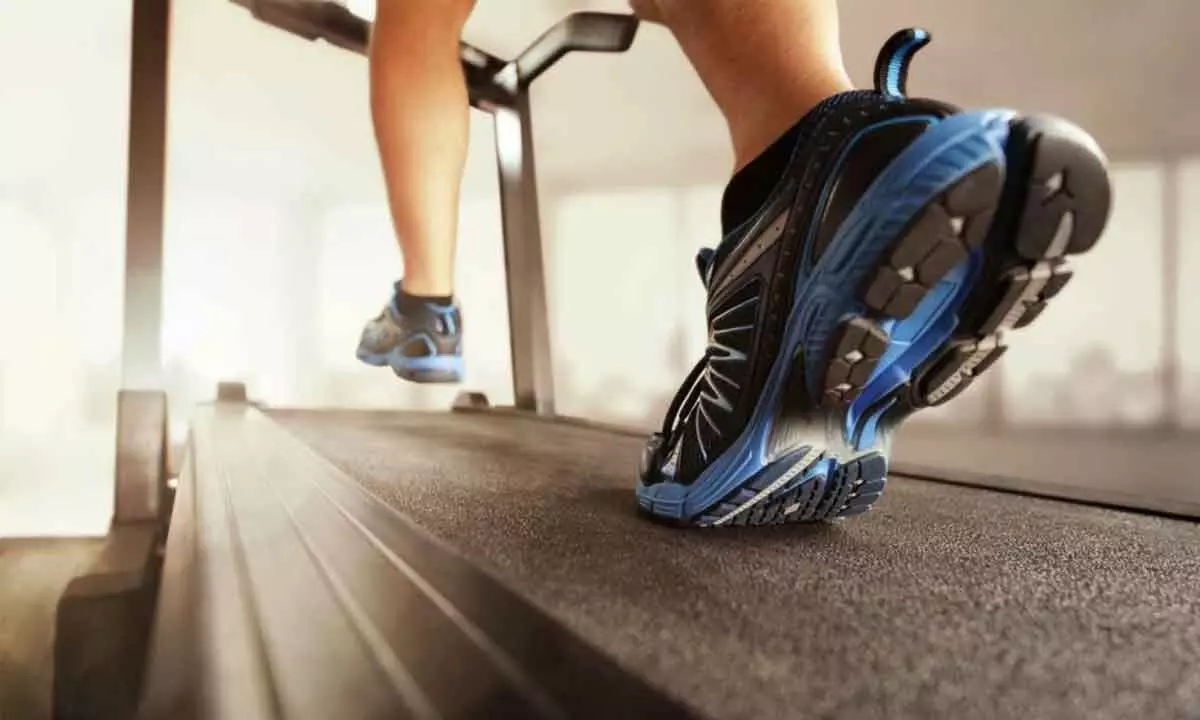Intense exercise may help keep Parkinson's disease at bay
Share :

Intensive exercise could slow the course of Parkinson's disease, suggests a study, which could pave the way for new non-drug approaches.
Intensive exercise could slow the course of Parkinson's disease, suggests a study, which could pave the way for new non-drug approaches.
The study, published in the journal Science Advances, identified a new mechanism responsible for the positive effects of exercise on brain plasticity. It showed that exercise performed in the early stages of the disease induces beneficial effects on movement control that may last over time even after training is suspended, according to Paolo Calabresi, Professor of Neurology at Catholic University, Rome.
"In the future, it would be possible to identify new therapeutic targets and functional markers to be considered for developing non-drug treatments to be adopted in combination with current drug therapies," he added.
Previous study has shown that intensive physical activity is associated with increased production of a critical growth factor, the brain-derived neurotrophic factor (BDNF). This was seen after a four-week treadmill training protocol in an animal model of early-stage Parkinson's disease. In the new study, researchers provided experimental support to the neuroprotective effect of exercise by using a multidisciplinary approach employing different techniques to measure the improvements in neuronal survival, brain plasticity, motor control and visuospatial cognition.
The main effect observed in response to daily sessions of treadmill training is a reduction in the spread of pathological alpha-synuclein aggregates, which in Parkinson's disease leads to the gradual and progressive dysfunction of neurons in specific brain areas (the substantia nigra pars compacta and the striatum – constituting the so-called nigrostriatal pathway), essential to motor control.
The neuroprotective effect of physical activity is associated with the survival of neurons releasing the neurotransmitter dopamine and with the consequent striatal neurons' ability to express a form of dopamine-dependent plasticity, aspects otherwise impaired by the disease. As a result, motor control and visuospatial learning, which depend on nigrostriatal activity, are conserved in animals that practise intensive training.
Neuroscientists have also found that BDNF, whose levels increase with exercise, interacts with the NMDA receptor for glutamate, enabling neurons in the striatum to respond efficiently to stimuli, with effects that persist beyond the exercise practice.
"Our research team is involved in a clinical trial to test whether intensive exercise can identify new markers to monitor the disease progression slowing in early-stage patients and the profile of the progression of the disease," Calabresi said.
"As Parkinson's disease is characterised by important neuroinflammatory and neuroimmune components, which play a key role in the early stages of the disease, the research will keep on investigating the involvement of glial cells, highly specialised groups of cells that provide physical and chemical support to neurons and their environment. This will allow us to identify molecular and cellular mechanisms underlying the observed beneficial effects," he said.







